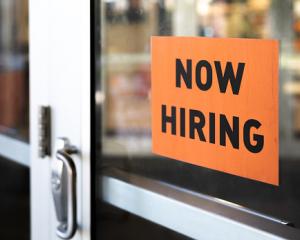Operating earnings are up 22% to $2.1 million in the period compared with a profit of $1.72 million in the previous corresponding period. The profit was helped by the company paying less in interest in the period. Trading profit was up 12.8% to $2.73 million.
Smiths City has available carry forward tax losses of $10.8 million and no income tax is payable. However, this year the company paid a deferred tax charge of $197,000 to take the reported profit down to $1.9 million, up 12.8% on the $1.69 million reported in the pcp.
Revenue in the period fell 1.1% to $108.4 million.
Chairman Craig Boyce said retail trading conditions had renained competitive in the period. Prices - particularly for consumer electronic products - were under pressure, margins were squeezed and property costs continued to increase.
''The increase in profit has been a result of the company managing these conditions effectively while retaining the majority of the benefits of the restructured financing arrangements introduced towards the end of the previous financial year.''
From a geographic viewpoint, in Christchurch, the rebuild, while gathering momentum, had been slower than expected and Smiths City had been affected by competitors that had reopened. Outside Christchurch, rural South Island had been strong, results were improving in Wellington and were in line with budget while the upper North Island economy remained flat, Mr Boyce said.
Managing director Rick Hellings said management had concentrated on increasing sales in its profitable lines over the past six months. That included focusing on furniture, kitchen appliances and bedding.
By product, the retailer continued to make strong gains in its flooring, whiteware and bedding operations. However, the appliance market continued to face tough times, particularly in the consumer electronics area, where the prices for televisions had fallen significantly.
Looking ahead, the company did not expect to see any significant change in the retail environment and was planning accordingly, he said.
Growth in sales would come, in Christchurch as the residential rebuild gained momentum, and by expanding its retail presence in the North Island.
Growth in margins would come from targeting higher margin products and controlling costs in retail was a necessity, Mr Hellings said.












